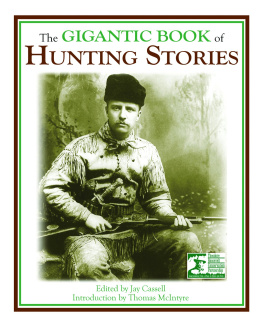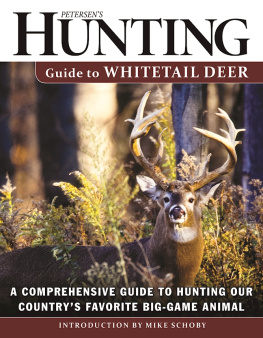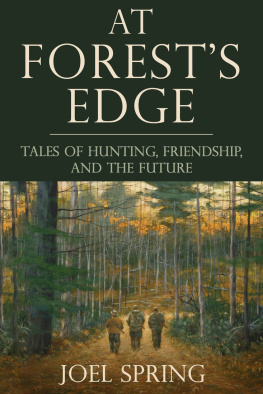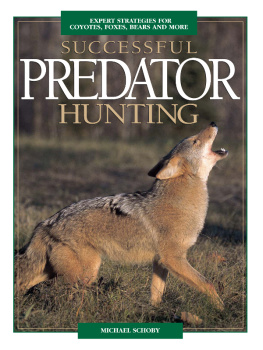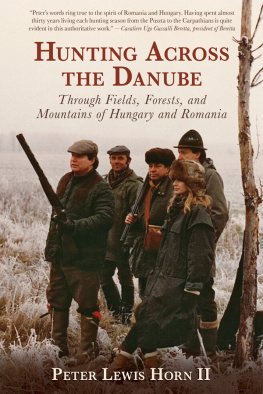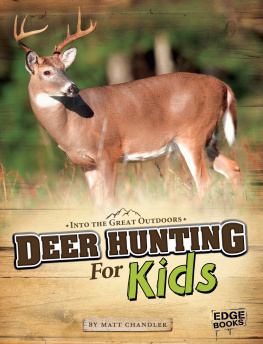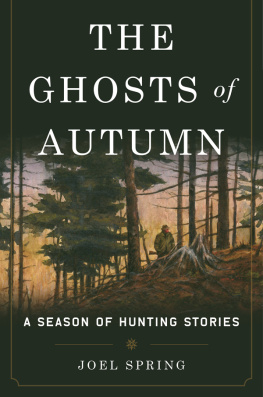
ALSO BY CHRISTOPHER CAMUTO
A Fly Fishermans Blue Ridge
Another Country: Journeying Toward the Cherokee Mountains
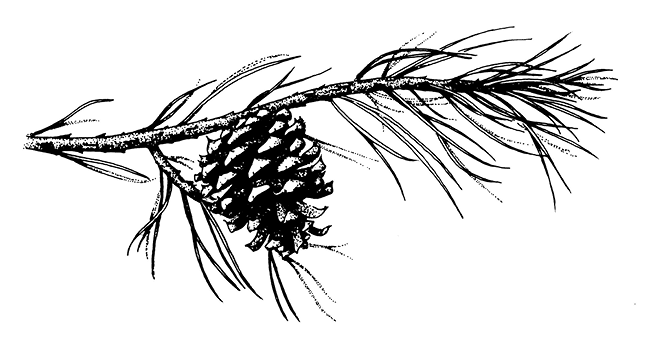
HUNTING
f rom HO M E
A Year Afield in the Blue Ridge Mountains
CHRISTOPHER CAMUTO

W. W. NORTON & COMPANY
New York London
For everyone who lives a border life,
for anyone who hunts from home
What I am I have stolen.
These mountains which were never mine
year after year have remade me.
ROBERT BRINGHURST,
Jacob Singing
Contents
Prologue
From this the poem springs: that we live in a place
That is not our own....
WALLACE STEVENS ,
Notes Toward a Supreme Fiction
S ome of us are drawn toward the life of things.
Despite all the unnatural changes in our landscapes and despite all the beautiful, wild life that has been lost from the world, the essential experience of nature is still available to anyone anywherethat frisson of recognition that catches us unawaresthe world and its weather reaching you through all your senses at once, fusing the strange and the familiar in a thrill of connection that leaves you feeling perfectly at home and profoundly homeless.
I am silently walking the river woods road in the predawn dark, heading for a deer blind. Half awake, I sense some sound and motion in the air. An owls wing brushes my face, leaving an imprint of strong primaries and soft coverts on my mind. This happens too quickly to startle me. The musty wing revives the memory of an odor ancient as pine sap or river-washed sandstone, fragrant trace of a time and place far from here, as if the owl had alighted from some Carboniferous-period conifer and been dipping toward me in the dark for as long as my being had been walking toward it. A few hundred yards from my cabin, I wonder if I will ever find my way home.
I am standing in the old pine planting at dusk, red elm longbow in my left hand, cedar arrow nocked. Still as a tree, I watch day and night exchange gifts beneath the dead limbs of those stout conifers, trying for the thousandth time to see what light and dark are. As the earth rolls slowly toward nightfall, a sharp-shinned hawk rustles onto a nearby branch. For an infinite moment we are face-to-face, two hunters occupying the same space. The universe trembles with the anomaly. When the hawk sees my eyes move, it stiffens in recognition. If this were a myth, we would speak and exchange tokens across the gulf between our natures. Perhaps the hawk would drop an indigo bunting at my feet and I would offer it the liver of a deer. I try to hold its amber eye, where day and night swirl strangely, as long as I can.
I am sitting on a canvas stool one winter afternoon, sketching trees in the barn woods. Im trying to capture the subtle differences in the shapes of oaks and walnuts and hickories, the characteristic way they aspire to capture light with their well-formed crowns. A red fox threads its way toward me from the upper spring. I watch the wary animal coming unawares. I study its astute otherness in the cold, bare woods, enjoying my terrible invisibility. When, passing at arms length, the fox finally senses me, it calmly turns its head as if taking me into its confidence. Its perfect face leaves me wondering which one of us had been watching the other.
An owl, a hawk, a fox. I am left to consider whether these ordinary encounters near home are the beginning or the end of experiences too large for me to sense completely. But a hunter is, above all things, a pragmatist. A hunter in the broadest sense possible, Im content to take the part for the whole, to bring home what game falls to my share. This book is, in part, an attempt to understand the wholeness of such fragments, to report on the thread of experiences that seem to lead elsewhere. A musty wing, an amber eye, the perfect face of a fox.
Hunting from home . The home of this book is a two-hundred-acre farm tucked into the rumpled upper end of what used to be called the Valley of Virginia about halfway between the trim-and-tidy college town of Lexington and the rough-and-tumble factory town of Buena Vista. Rockbridge County lies just south of the Shenandoah Valley proper, its woods and fields drained by the east-flowing James River rather than the north-flowing Shenandoah. One of the Jamess principal tributaries, the Maury River, flows along the western edge of the farm, having sliced through the imposing ridge of Tuscarora sandstone I can see from my back porch. The Blue Ridge Mountains, a few miles off, are visible to the north, east and south. The Allegheny Mountains, from whose slopes the Maury takes its flows, lie farther off to the west. Allegheny, Blue Ridge, James, Maury, Shenandoah, Tuscarora, Virginia this is to be well situated among names that are, for the moment, still attached to a landscape worth looking at. Ive taken advantage of that moment and taken Highland Farm as a coign of vantage, a good place from which to observe the life of a barred spiral galaxy, to practice what Henry Thoreau called the discipline of looking always at what is to be seen.
One purpose of this writing is to re-present this farm in detail as a place to dwell in and on. For the sake of clarity Ive had to bluntly name its pastures, woodlots, springs and gatesthe front pasture, the river woods, the strong spring, the old clear-cut gate, for examplealthough when walking about I do not think of these places as named. Narrative requires naming (hence Allegheny, James, Shenandoah, Virginia...). But I dont want this naming to make it seem as if I am taking hold here in a way I am not, trying to fix what I hope will, in the end, escape me and the hunting I do here. I love language as much as landscape, but so long as denotation is firmly rooted in the precision of the tangible, I root for the wild connotations of living things to exceed my grasp and lead me on. And although Im prone to enjoy the common and scientific words for thingsparticularly the names of birds, trees and starsI understand that naming and discovering are different processes and that the former should always defer to the latter.
I should admit from the outset that beyond trying to understand the poetics of this place I have no title here. A notch above squatter status, I rent a relatively snug four-room log cabin where I live and work. I say relatively snug because from May to October, I share my office with a rat snake that seems to enjoy the tangled company of computer and printer cables balled up behind the desk. Not to mention the opportunity of an odd mouse or two. When I am working late at night, it is not unusual to see its finely wrought face float out from behind the monitor, its hunger and curiosity stirred perhaps by the warmth of humming gigabytes and the ultrasonic ping of pixels. The mesmerizing appearance of this snake blurs the line between the tame and the wild, a distinction nearly always in need of reconsideration. Ive never yet observed an animal that didnt have a culture of its own. If I am downstairs when Elaphe obsoleta begins to make its rounds, its discreet rustling sounds like a fax coming in. By morning, it will have made its way down from my loft office. One day I found all three feet of it wound up in an empty tier of the fruit basket that hangs over my small dinner table. While coffee brewed, I gathered the snake, which coiled tightly around my hands, and set it on the front porch, hoping to instill some sense of the boundary between inside and outside despite the imperfections of the cabins chinking.
Next page

